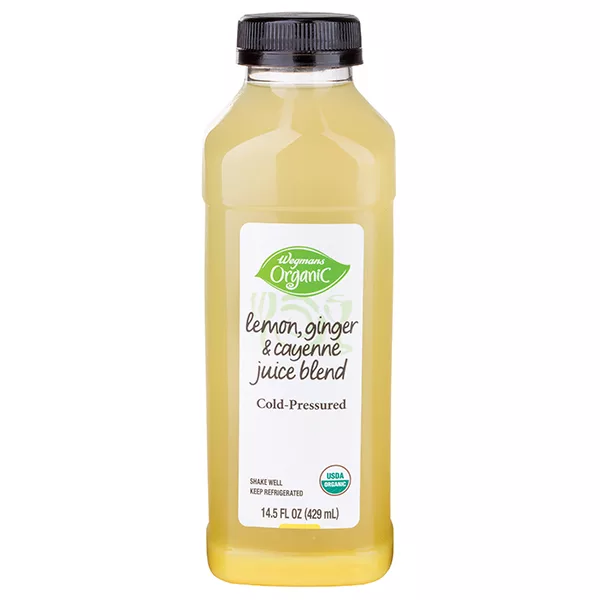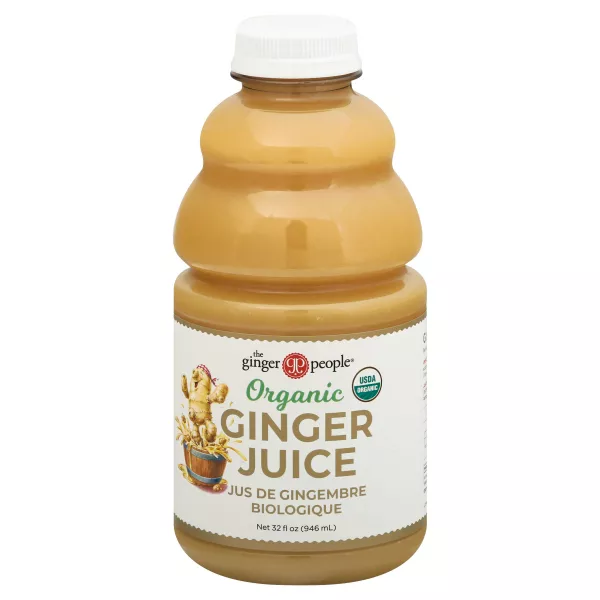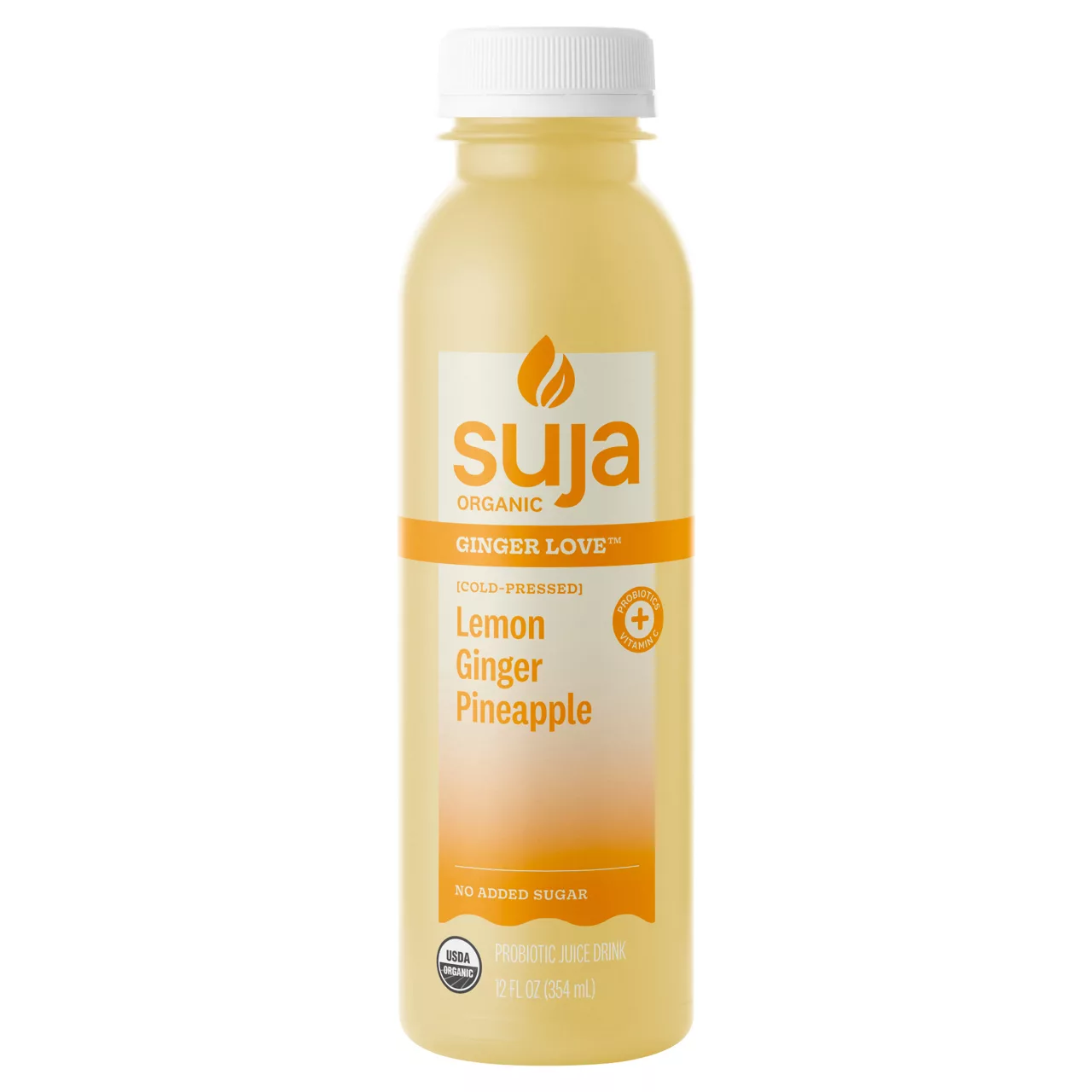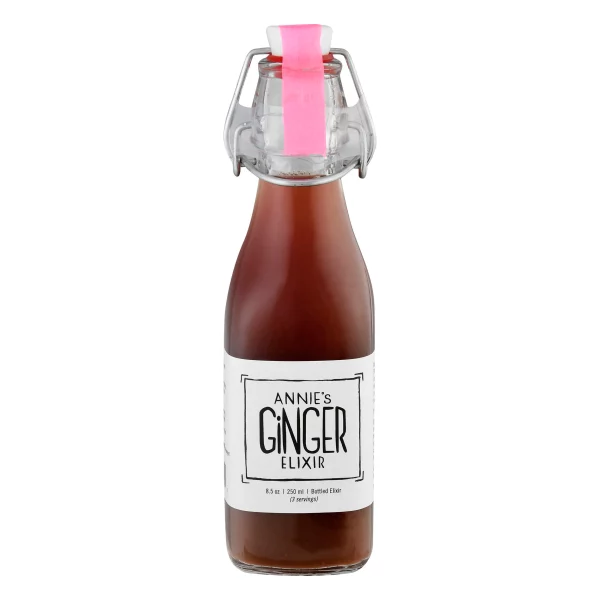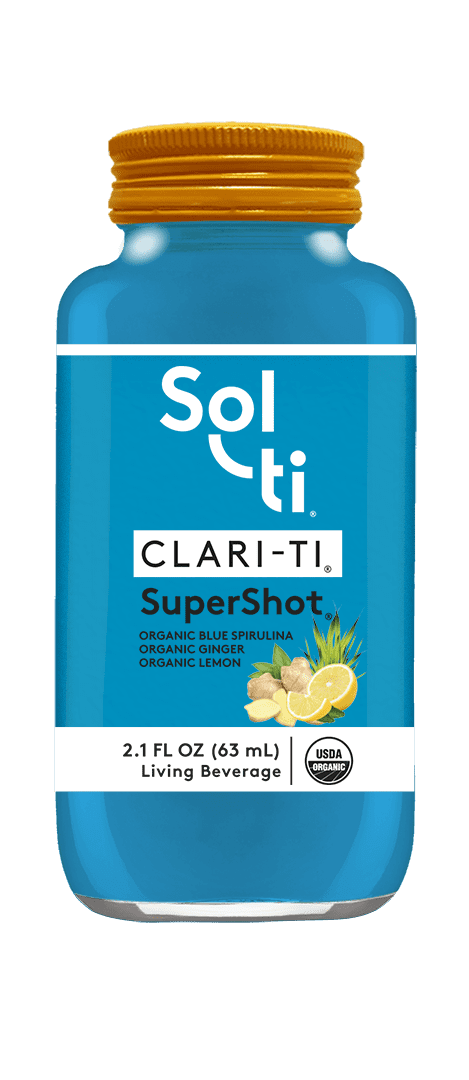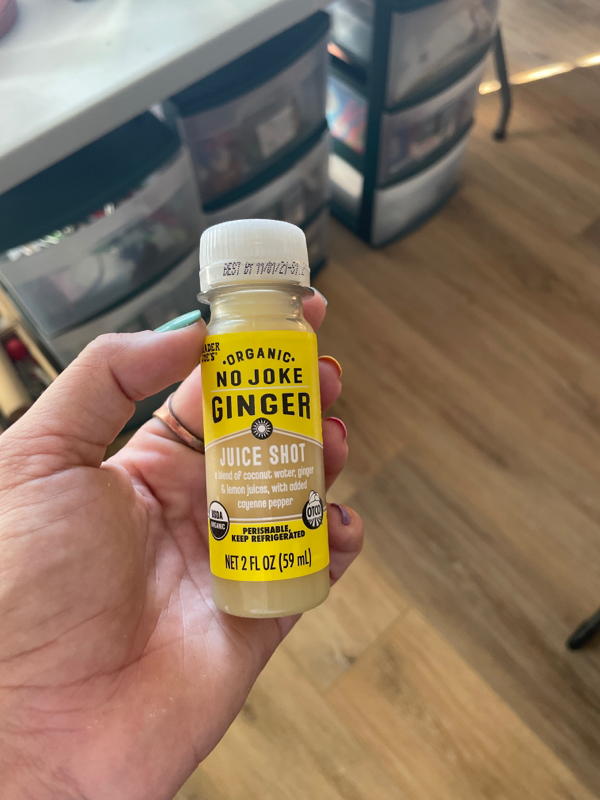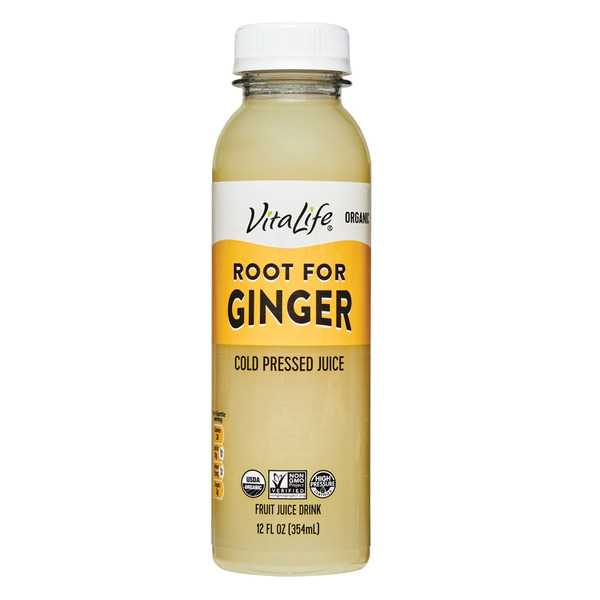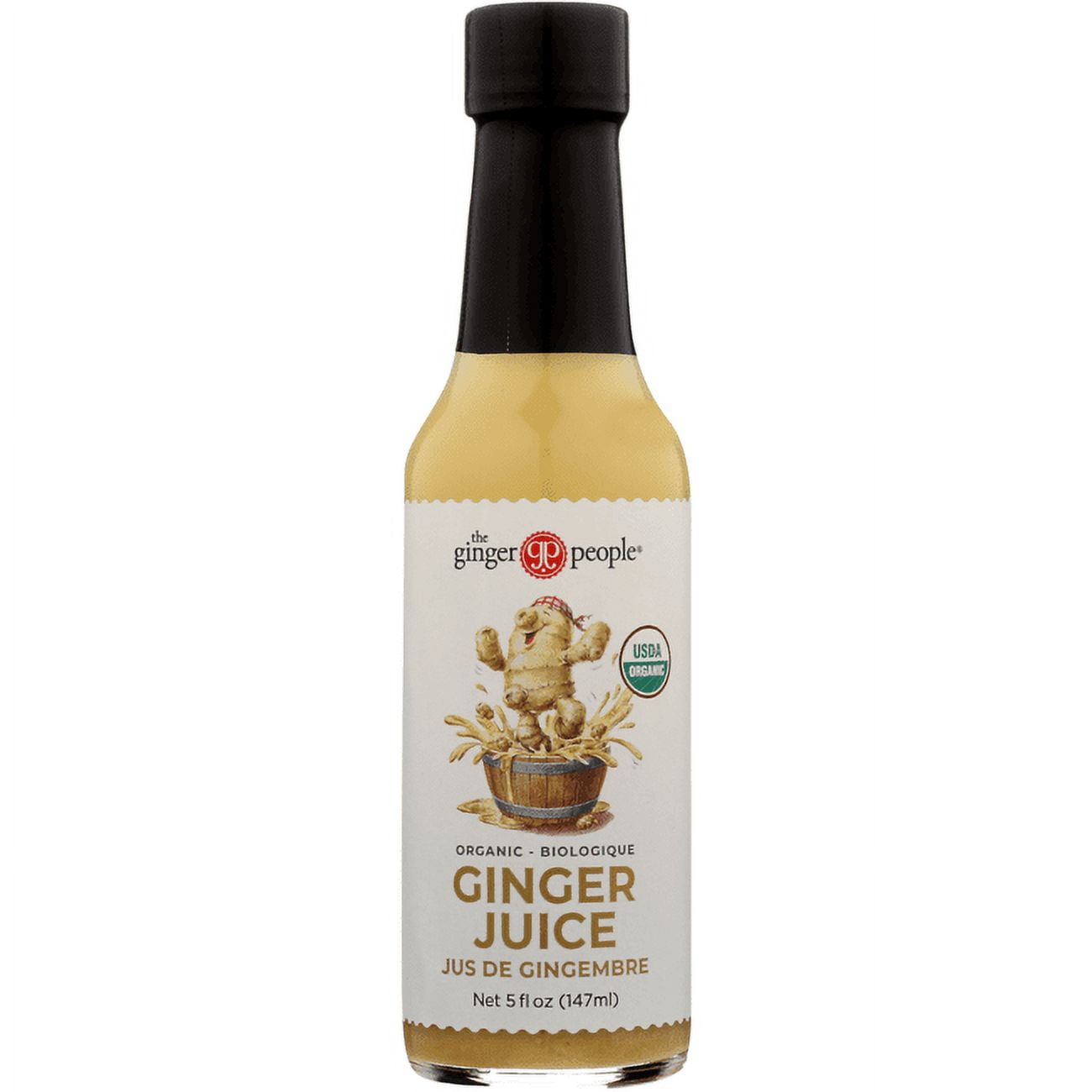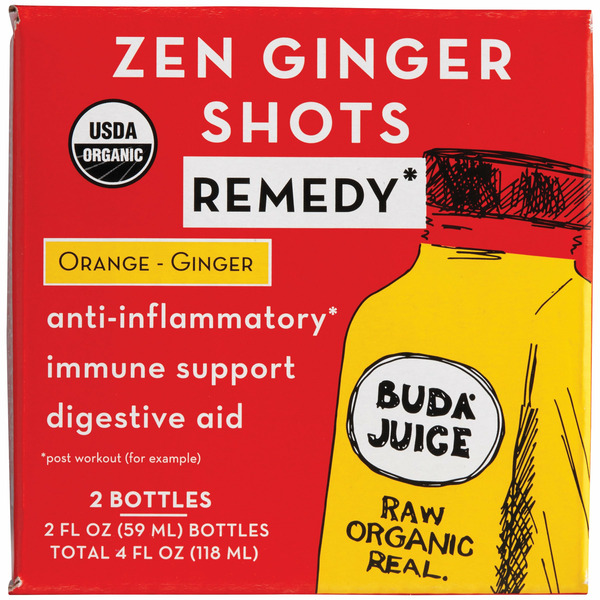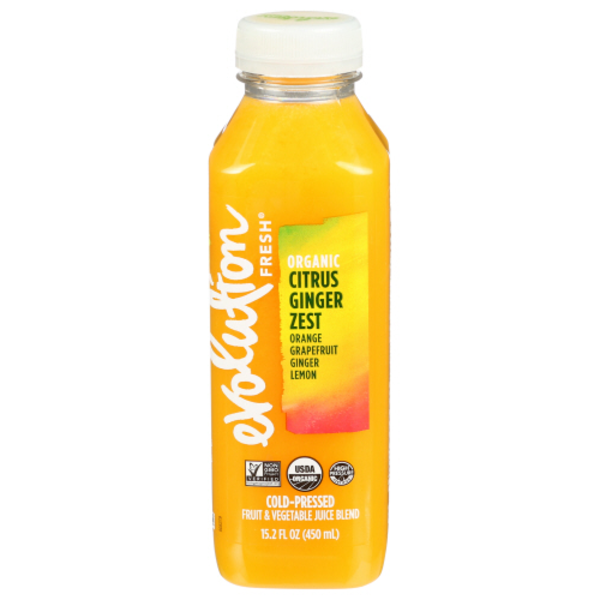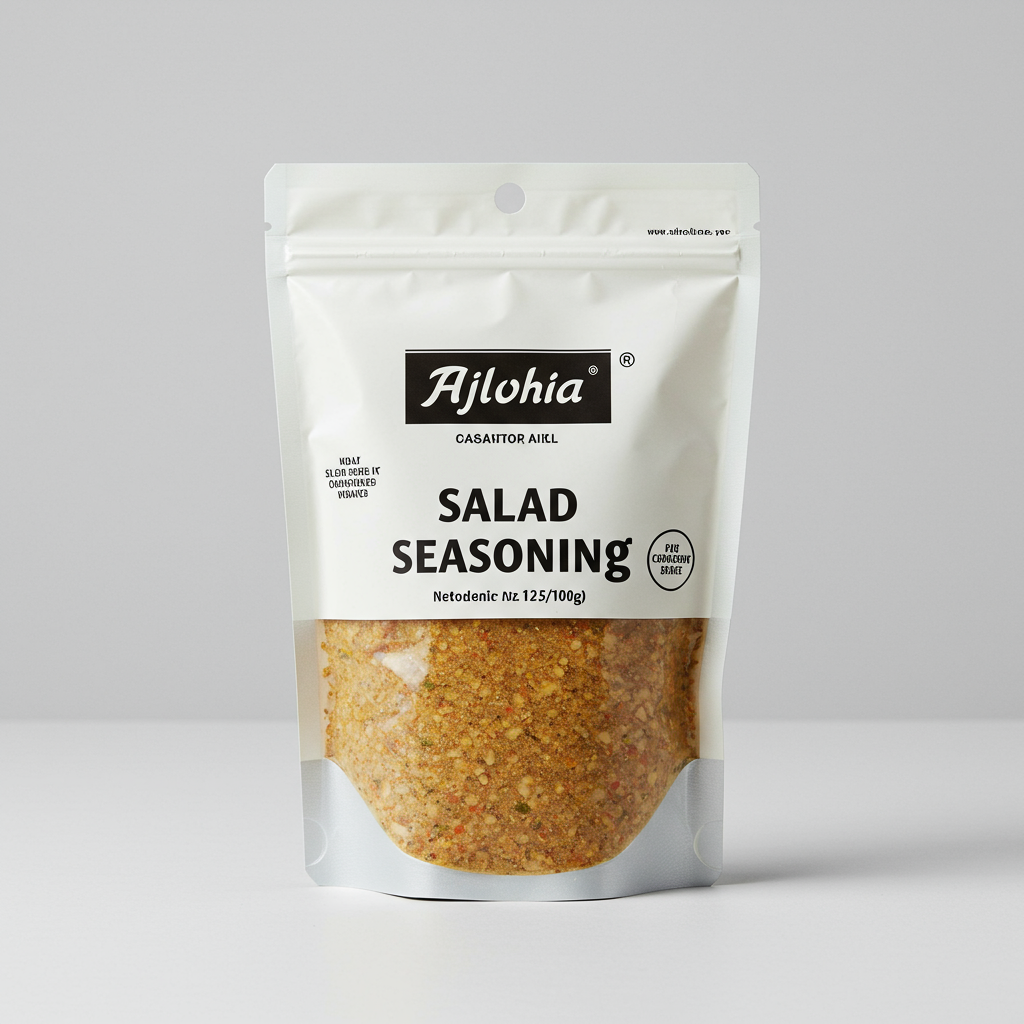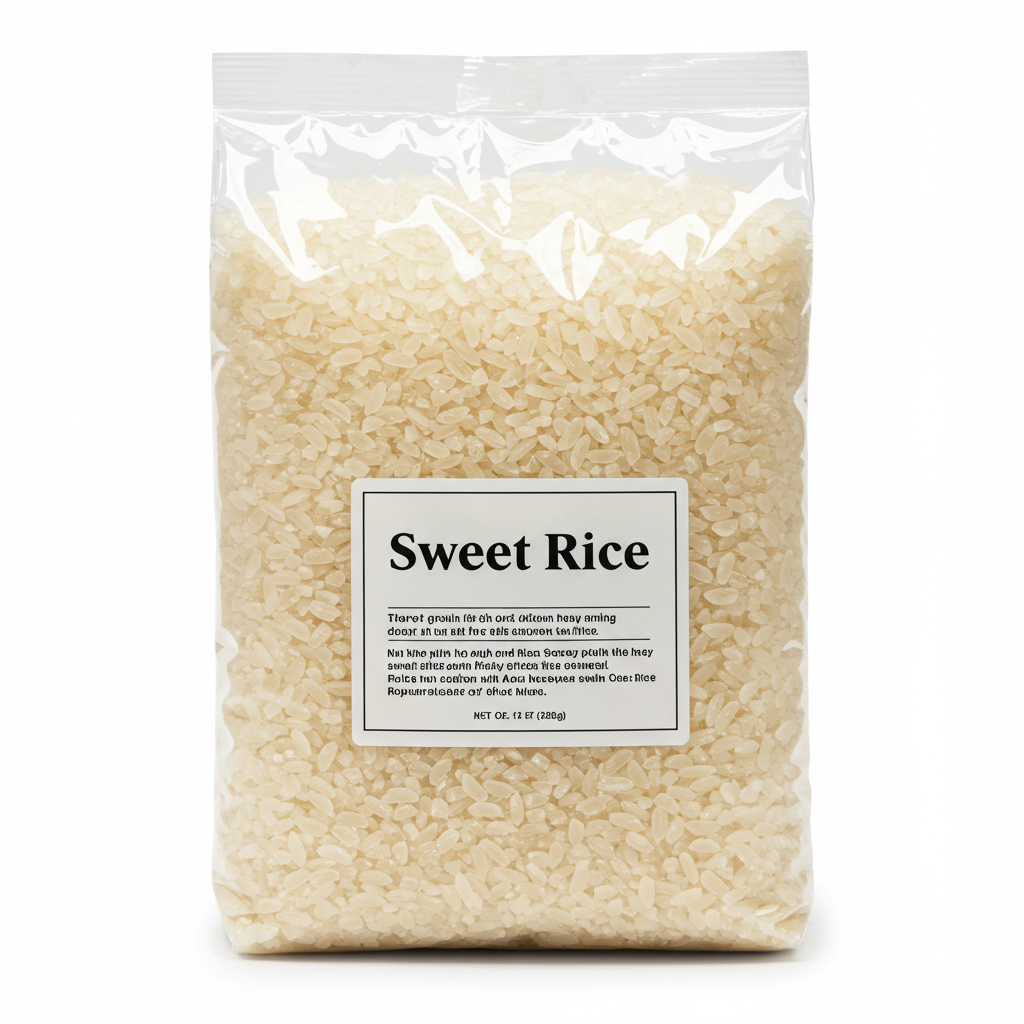BEVERAGES
COCKTAILS
Ginger Juice
Ginger juice is a versatile liquid extracted from fresh ginger root, a popular spice known for its warm, zesty flavor and numerous health benefits. Typically light golden to pale yellow in color, this aromatic juice can easily elevate the taste of various recipes, from savory dishes to sweet beverages. Rich in antioxidants and bioactive compounds, ginger juice is widely used to support digestion, ease pain, and fight inflammation.
You can either purchase ginger juice at local markets or make it at home using a juicer or blender. Incorporating this potent extract into your daily meals and drinks can effectively boost both flavor and nutritional value. Besides, ginger juice pairs well with countless ingredients, making it a must-have staple for every home cook.
#34
IN JUICE
$0.11
AVG / OZ
58 Ginger Juice Products
Wegmans Organic Juice Blend, Lemon Ginger Cayenne, Cold Pressured
The Ginger People Ginger Juice, Organic
Suja Organic Cold-Pressed Ginger Love, Fruit Juice with No Additives, Excellent Source of Vitamin C for Immunity Support, Vegan, Plant-Based & USDA Certified
Annie's Ginger Elixir Bottled Elixir
Sol-ti Clari-ti SuperShot, Organic Cold Pressed Concentrated Juice Shot
Ginger Juice Shot
VitaLife Ginger Cold Pressed Juice
The Ginger People Ginger Juice - Naturally Pressed - Original
Buda Juice Organic Zen Orange Ginger Cold-Pressed Shots, 2 ct
Evolution Fresh Organic Citrus Ginger Zest Cold Pressed Juice Blend
Used In 1 Recipe
Ginger Juice Is Frequently Used With
Ginger Juice FAQ
When cooking with ginger juice, many people often overuse it, not realizing that its pungent flavor can quickly overwhelm a dish. Instead of pouring it directly into the mix, try to add small amounts gradually, adjusting the quantity according to your taste. It's equally important to note that heat can lessen its zesty kick, so it's better to add ginger juice towards the end of the cooking process to preserve its tanginess and health benefits.
To maximize the use of ginger juice, be creative in using it beyond stir-fries and marinades. It can be a refreshing addition to your teas, smoothies, iced drinks, soups, salads, and desserts. Plus, few know that it makes an excellent natural remedy against nausea and digestive complaints.
Believe it or not, ginger juice can be used as a hair and skin treatment as well. While it's not exactly a cooking tip, it's fascinating to mention how it can help reduce dandruff, stimulate hair growth, and improve complexion when applied topically.
How do I make ginger juice at home?
Can I make ginger juice without a juicer?
Why does ginger juice curdle my milk?
Can I replace ginger powder with ginger juice in recipes?
How can I control the strong flavor of ginger juice in my recipes?
How can ginger juice be used for relief from sore throat?
Does ginger juice help in weight loss?
How to use ginger juice for hair growth?
Can ginger juice help with eczema and other skin conditions?
How can I use ginger juice to spice up drinks?
Expiration & Storage Tips
When does ginger juice expire?
If bought from the store, unopened ginger juice should last around 12-18 months before expiring. Once opened, this timeframe reduces significantly to only 7-10 days when stored in the refrigerator. Be sure to check the ‘best by’ date printed on the product label as well. Homemade ginger juice doesn’t contain preservatives and thus has a shorter shelf-life, typically lasting 24-48 hours in the refrigerator. If frozen, ginger juice can extend its shelf-life to 6 months.
How do you tell if ginger juice is bad?
Check the color, smell, and texture of the ginger juice. If you notice any significant changes, these could be signs of spoilage. Fresh ginger juice should retain its light golden color. If it darkens, discard it right away. The smell of fresh ginger juice is usually aromatic and spicy. Any foul or off odors could be indications of spoilage. Lastly, if there are any mold or fungus floating on the juice, it's definitely time to toss it.
Tips for storing ginger juice to extend shelf life
• Always store the ginger juice in an airtight container in the refrigerator. Opened bottles should be used within a few days for maximum freshness.
• If you don't plan on using the juice right away, consider freezing it in ice cube trays. These 'ginger juice cubes' can then be used sparingly, as and when you need them.
• Homemade ginger juice should be used immediately as it does not have any preservatives. If you must store it, refrigerate and consume it within two days.
EXPIRES WITHIN
5 - 8
WEEKS
Substitutes
Health Info
Macros
Allowed on these diets
LOW FAT
HIGH CALCIUM
VEGETARIAN
KETO
PALEO
WHOLE 30
MEDITERRANEAN
LOW CARB
VEGAN
LACTOSE FREE
GLUTEN FREE

